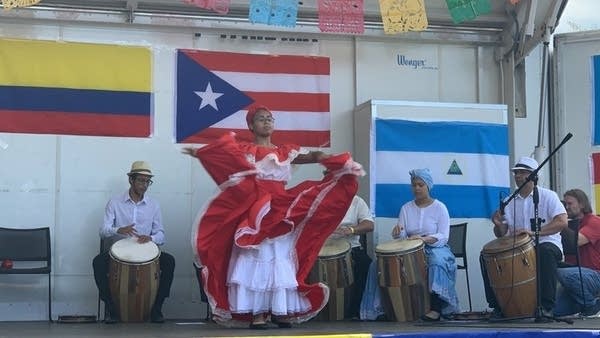Festival aims to celebrate Afro-Latino culture and fight 'erasure'

AfroLatinidad — Vibras de la Diaspora not only celebrates and embraces Afro-Latinidad, but also educates on what it means to be Latino.
Courtesy of Borikén Cultural Center
Go Deeper.
Create an account or log in to save stories.
Like this?
Thanks for liking this story! We have added it to a list of your favorite stories.


